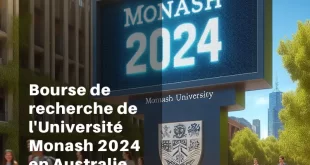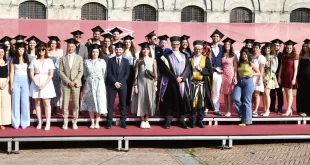About the Project
Part of the €2 million UKRI-guaranteed ERC grant PETRARCH: Pinpointing Earth-system Thresholds for Anoxia with New Reconstructions of the Cretaceous Hothouse.
Lead Institution: University of Bristol, School of Earth Sciences
Lead Supervisor: Dr Michael Henehan, School of Earth Sciences, University of Bristol Co-supervisors: Prof. Rich Pancost, School of Earth Sciences, University of Bristol; Dr. Fanny Monteiro, School of Geographical Sciences, University of Bristol; Prof. Brian Huber, Smithsonian Institution
Project Enquiries: Michael.Henehan@bristol.ac.uk
PETRARCH Project Background
Oxygen levels in Earth’s oceans are dropping fast due to anthropogenic nutrient and CO2 release, and the consequences of this for marine ecosystems are difficult to predict with current models. The Cretaceous Period (66- 145 million years ago) witnessed numerous extreme ocean anoxic events (OAEs) that are thought to have been caused by pulses of volcanic CO2 and potentially nutrient release. Knowing the exact mechanisms by which volcanism triggered global ocean anoxia would provide vital empirical information about potential future tipping points in our Earth system. Currently, however, our constraints on climate, atmospheric CO2 and carbon cycling in the Cretaceous are qualitative at best, preventing OAEs from being useful analogues. The PETRARCH project aims to rectify this, by combining both new and proven geochemical proxy reconstructions with cutting-edge Earth system modelling.
Project Aims and Methods:
This PhD project fits into the wider PETRARCH project (www.petrarch-project.science) by looking at how CO2 fluctuated in the run-up to and over Cretaceous OAEs. It will also contrast these with events that saw only localised anoxia, and events where volcanic carbon injection is well-documented, but there was no discernible anoxia. Through each event the project will investigate the role of changing behaviour of the oceans’ biological pump, through reconstructions of changing vertical water column pH profiles. To do this, the student will analyse the boron isotope composition of fossil foraminifera and radiolarians. Our aim is to work out what the key interacting factors were to have caused volcanic CO2 injection and warming to spiral into global periods of marine anoxia. In particular, this studentship will look at the possible role of ocean acidification, marine extinction, pelagic ecosystem function change and shallowing of water-column organic carbon remineralisation. The student will work alongside another student currently reconstructing the Cretaceous atmospheric CO2 and ocean pH baseline upon which these events were superimposed. In addition, the student will work closely with a dedicated PostDoc modeller who will implement their findings into the cGENIE global biogeochemical model. As well as boron isotopes in foraminifera, the student will be able to capitalise on ongoing research also taking place within PETRARCH to establish radiolarians as a new archive of ocean pH, thereby implementing cutting-edge methodology. Trace element measurements made alongside these boron isotope measurements will also allow us to reconstruct ocean temperature and major ion chemistry changes over the OAEs. This work will use International Ocean Discovery Program (IODP) marine drill core samples from all round the Earth’s oceans, and will avail of the state-of-the-art analytical facilities housed within the Bristol Isotope Group (BIG) lab, as well as dedicated sediment washing and micropalaeontology labs.
Candidate requirements
The School of Earth Sciences is a hub of interdisciplinary research; as such, we are open to intellectually diverse applicants, and welcome new perspectives. Prior knowledge of relevant subject areas like micropalaeontology, (palaeo)climate science, or geochemistry could therefore be helpful, but are not a fixed prerequisite per se. Similarly, we welcome and encourage student applications from minoritized and marginalised backgrounds, and value a diverse research environment.
Project partners
This project will be part of a team of two PhD students, two PostDocs and one technician funded through the PETRARCH project. It will be based at the University of Bristol’s School of Earth Sciences, which is ranked 2nd in the UK in the Research Excellence Framework 2021, with 100% of research output being rated as rated as ‘world leading’ or ‘internationally excellent’. Outside of the School, it will involve frequent interaction and exchange of ideas with collaborators in the School of Geographical Sciences and the School of Chemistry. Collaborators outside Bristol include scientists in the US, Italy and Germany, meaning the student will immediately be linked into an international network of scientists.
Training
Within the PETRARCH project, there will be ample opportunities for travel and associated training. Funds for international conferences and summer school attendance have been allocated. Analytically, the student will be trained in foraminiferal taxonomy, boron isotope analysis via MC-ICPMS and trace element analysis via ICPMS. Training in cGENIE Earth System modelling from co-supervisor Fanny Monteiro may also possible. There will also be ample opportunity to develop teaching and mentoring skills through engagement in training our talented undergraduates, should the student wish to do so.
Useful links
To apply see links at: http://www.bristol.ac.uk/earthsciences/courses/postgraduate/
Please note: Emailing a CV or cover letter will not constitute an application for the role – applications must be submitted through the official admissions portal. If you are applying for this programme, you need to select PhD Geology as the programme choice when completing your online application form. This pdf is sufficient to upload as a project description.
For information on the School of Earth Sciences: http://www.bristol.ac.uk/earthsciences
For information on PETRARCH: www.petrarch-project.science
The application deadline is Friday the 12th April. Online interviews will take place soon after. The preferred start date will be mid-September 2024 but the funding of the project allows some flexibility. Financial support by way of stipend is offered for four years at standard UKRI rates. This project is open to international and UK applicants alike.
Job Features
| Job Category | Doctorat |
 medjouel.com Study Non Stop
medjouel.com Study Non Stop



